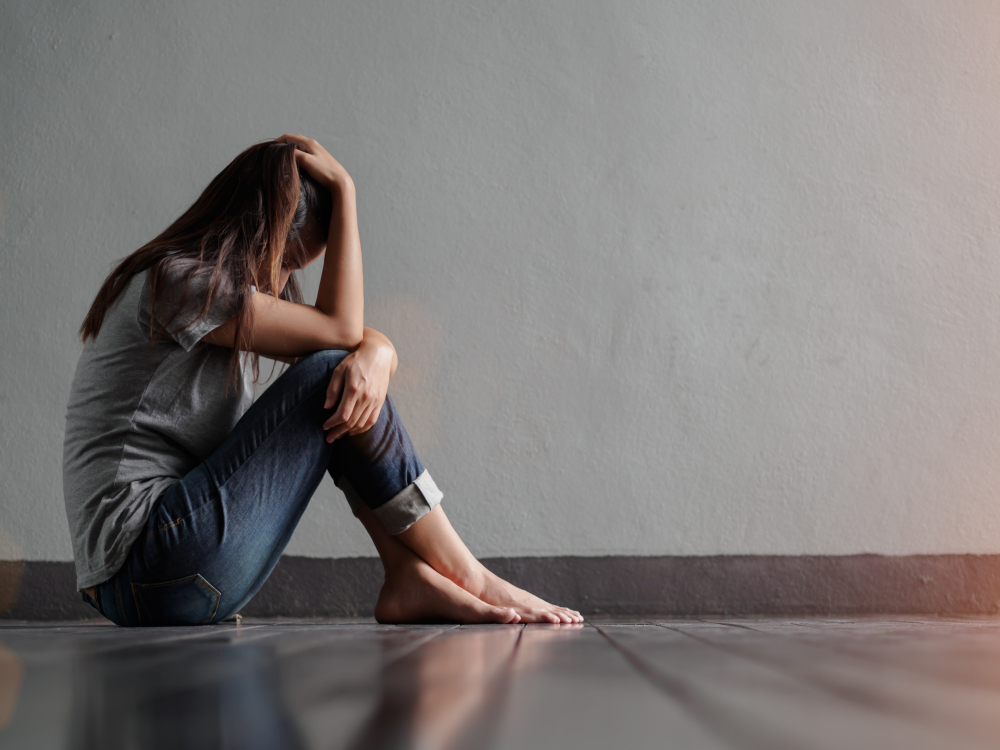Depression is a mood disorder that causes a persistent feeling of sadness and loss of interest and can disrupt your daily life. It may affect work productivity, cause a loss of appetite, and cause sleep problems. If you have experienced such symptoms, it is likely that you are suffering from depression.
Depression and its treatment
Certain stressful experiences in life might make us depressed, which is normal, but if we can’t get out of them, it becomes a huge source of anxiety. According to World Health Organization estimates, depression has become the biggest cause of disability in the 21st century, impacting approximately 120,000 million people globally.
Stressful life events like losing a job, going through a divorce, heartbreak, or the death of someone you care about can all lead to depression. Being unwell for an extended period of time or abusing drugs and alcohol can also lead to depression. What truly happens with a depressed individual is that there is a chemical imbalance in the brain, which causes the cells in the brain to be unable to communicate with one another. During a depressive state, the parts of the brain responsible for food, sleep, thinking, and behaviour do not operate properly. Depression has also been shown to run in families. Depression is the result of environmental, physiological, psychological, and hereditary factors.
Depression is treated with a combination of psychotherapy and medication. Patients are taught methods to help them cope with their depression during counselling. Psychotherapy helps people develop positive thinking.
Medications to treat depression – Antidepressants
Antidepressants are drugs that are used to treat depression. Antidepressant medicines cause an increase in chemical messengers that aid in brain function, such as norepinephrine, serotonin, and dopamine. An antidepressant reduces symptoms like anxiety, fatigue, and sleeplessness.
The doctor will use some criteria to select the right antidepressant for you. If a certain antidepressant has previously worked successfully for you, the doctor may prescribe it again. If you’ve never taken antidepressants before, the doctor will inquire if any of your family members, such as parents or siblings, have used antidepressants that worked well for them. Certain antidepressants are harmful if you have other health issues. The doctor will prescribe a less harmful antidepressant. Certain foods interact negatively with antidepressants, so while prescribing them, the doctor will inform you of your dietary limitations. The doctor’s other criteria for prescription antidepressants include what works best with your existing medications, and his own expertise can also affect the medication regimen.
Mechanism of action
When you start to take antidepressants, you will notice that your appetite improves and you feel more energized. You will be able to go about your normal daily activities while also taking care of yourself. Life’s zeal will be rekindled. If you are being treated for depression for the first time, you must continue to take the medicine for 6 months after you begin to feel better. If you have depression for the second time, you must take the medication for a year. If you have depression for the third time, you will need to take antidepressants for an extended period of time. It is advised not to consume alcohol while taking antidepressants since it can increase depression and cause seizures when combined with some antidepressants.
Side effects
Antidepressants are not tranquillizers and do not give you a ‘high’. They are not addictive, but they do have adverse effects. Antidepressants can cause impaired vision, anxiety, bladder issues, diarrhoea, constipation, exhaustion, dizziness, dry mouth, hand tremors, increased heart rate, excessive sleep, sexual dysfunction, nausea, muscle twitching, and weight gain. If the negative effects do not subside, consult your doctor. The doctor may prescribe a different medication or change the dosage.
Keep depression away
Engaging in activities or hobbies that interest you will keep depression at bay. At this moment, the support of your family and friends is critical. Never be alone, and always surround yourself with those who care about you. You can also join support groups to help you get over your depression. It is also critical to eat healthily and exercise on a regular basis. Taking these steps and making certain changes to your routine will motivate you to move forward in life.




